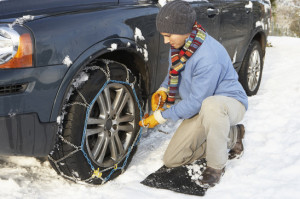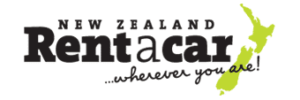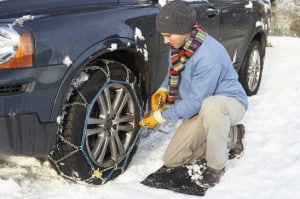 Weather conditions in New Zealand can be unpredictable at the best of times, the addition of unforeseen snow and road ice and even heavy rain or fog can periodically make driving conditions quite treacherous. Even though it is rare for winter snow to cause road closures extreme care must be taken when driving, particularly in alpine regions.
Weather conditions in New Zealand can be unpredictable at the best of times, the addition of unforeseen snow and road ice and even heavy rain or fog can periodically make driving conditions quite treacherous. Even though it is rare for winter snow to cause road closures extreme care must be taken when driving, particularly in alpine regions.
Driving on snow and ice presents a variety of new challenges; speeds, stopping, starting and turning can be adversely affected. If you can reschedule or delay your trip then remaining off the roads is ideal, but if you have to make the journey there are a few things to keep in mind when driving in snowy conditions.
Plan Ahead
Expect the unexpected, just because its fine when you depart doesn’t mean it will be along your entire journey. The New Zealand Transport Agency is a good place to check for road closures or traffic warnings prior to departure or for up to date weather forecasts the Metservice is a reliable New Zealand weather site, but remember to be prepared for the conditions to change.
The New Zealand winter months fall in June, July and August, these are the months most likely to encounter snowy or icy conditions. Be sure to clear any ice or snow from your windscreen, roof and all windows completely before setting off to ensure no obstructions to your vision during your journey. If the weather is extreme, delay travel and stay indoors.
Always Be Prepared – 11 Essentials For Your Emergency Winter Driving Kit
Packing a winter driving emergency kit before departure is recommended as a precautionary measure, after all its better to be safe than sorry. 11 things to include in your emergency winter driving kit include:
- A fully charged mobile phone
- Extra clothing, blankets, coats, gloves etc
- Snow chains
- A torch
- Reflective safety gear
- A First Aid Kit
- A Fire Extinguisher
- Tyre changing tools
- A multi-tool or Swiss-army type knife
- Spare food and water
- A small spade
Help And Advice
Always follow the advice and recommendations of road patrol or police officers. Road closures and restrictions are put in place for your safety, ignoring these will not only void your insurance, it is also illegal to drive on a closed highway. In the event of an emergency always dial 111.
For mechanical breakdowns, contact your breakdown service provider, or local garage or workshop. If you get stuck remain with the vehicle until help arrives, and most of all keep warm. Report any crashes to the police even if no one was injured.
Road conditions, closures and delay information is helpful before departing on your journey, along with up to date weather forecasts and local conditions.
Fitting Snow Chains
Snow chains provide increased traction when driving in snow and ice and are available on all types of vehicles including those with four wheel drive capabilities. It is best to check with your car rental company for information on securing snow chains for your trip.
Make sure you know how to fit them and when to fit them before leaving your car rental depot. Car hire companies will provide the correct size and be more than happy to help with fitting instructions but here is a handy video showing just how easy it is:
Snow chains give a reassurance of added safety when having to unexpectedly adapt to the changing conditions, however they are only to be used when the road surface is covered in a protective layer of compacted snow or ice.
Remember to pull over into a safe off-road area to fit your chains, wearing safety reflective clothing is a good idea. When driving with snow chains fitted always drive carefully and slowly and remove them when the road conditions clear as continuing to drive with them on can cause damage.
5 Tips For Driving In Snow
- Drive To The Conditions. Driving in snow and ice is dangerous, give yourself time to manoeuvre – slow down! Slowing down well before corners, give way and stop signs to reduce the necessity for sudden braking is advised.
- Drive With Your Lights On. Snow, fog and heavy rain can reduce visibility, having headlights on (dipped) increases the chance of other vehicles being able to see you.
- Maintain Increased Following Distances. When attempting to stop or slow down in snow and ice the reduced friction between the car and the round can cause the vehicle to slide, increased following distances should be maintained at all times to avoid collisions.
- Avoid Sudden Braking Or Sharp Turns. Braking and turning should be approached in a gentler fashion to avoid entering a slide. If your vehicle begins to slide, reduce pressure on the accelerator and attempt to maintain steering.
- Allow Extra Time. Slower more careful travel will mean a longer journey time. If possible it is best to travel during the warmer part of the day, giving snow and ice the opportunity to melt and increased traffic levels. If it is necessary to travel in darkness then be extra prepared for the presence of ice, particularly black ice.
Winter Holiday Essentials For Touring New Zealand
If you are planning a holiday to New Zealand during winter you’ll require a few extra items in your luggage to make your stay comfortable and enjoyable. Some international tourists are unprepared for the wet and cold as being an island nation the climate is quite different to larger continents. Officially New Zealand’s climate is classified as temperate, which I would interpret as unpredictable!
Winter Shopping
On good days you will get away with maybe the first two layers. If there is a cold wind you will need the third and if it’s icy and windy and you are further down south or on the exposed West Coast of the South Island you will need ski jackets. If you feel the cold you can always wear two thermals or buy a heavier weight base or mid layer item.
Luckily New Zealand has some fantastic home grown outdoor clothing businesses that can supply all the gear you will require, so if you don’t have the right protective clothing at home you can stock up on some high quality gear while you’re here. Layering is your best option for clothing, starting with your first layer of thermals. These can be purchased at a good price from retailers including Kathmandu, Torpedo 7, Bivouac, or Macpac. These shops carry a great range of outdoor clothing and accessories, covering all price ranges.
Keeping It Local
Local brands like Icebreaker and Untouched World, both of which are internationally known for high quality and performance, are a great option as they are designed specifically for NZ conditions. You will pay a premium for these brands but will be buying a great product that will last. Both companies have grown their brand with the use of Merino wool from the high country sheep in New Zealand, so you will be dressed for the climate like the locals.
Merino sheep are farmed for their fine wool fibre, ideal for making beautiful clothing, with natural properties of drawing moisture away from the skin, insulation and anti-microbial properties which means you won’t smell so much either!
8 NZ Winter Holiday Essentials
- Gloves And Beanie. Always carry these as you never know what the wind chill will be.
- Sunblock And Hat. Sunburn is just as common in winter, especially if you are on the water or snow (there’s a hole in the Ozone above NZ so take extra care).
- Sunglasses. The sun is lower making visibility difficult when driving.
- Waterproof Outerwear And Footwear. Great for tramping tracks, glaciers or water activities.
- A Headlight. Useful in an emergency but also when exploring caves and tracks and trails for early morning starts and in the evenings.
- Really Woollen Socks. Trust me on this one you will thank me later!
- A Good Day Pack. Preferably with front ties for support.
- A Power Adaptor And/Or Charger. For your electronic devices, NZ power points are three pronged 230V 50 Hz.
Winter Car Rental
Most good car hire companies will have a range of vehicles suitable for winter driving in New Zealand. Four Wheel Drive vehicles are sometimes recommended especially when travelling to remote ski fields and through back country alpine roads.
Snow chains are usually offered in conjunction with you rental vehicle, particularly in the winter months. Rental car staff will be more than happy to answer questions and give advice for safe winter driving and also provide recommendations if planning to travel through areas known for heavy snowfall.
For the safety of all motorists travelling during the colder months please be well aware of the road conditions and prepared for potential hazards and delays prior to departure. If the weather becomes severe, consider staying where you are until the roads clear up and it is safer to travel. Have a safe and enjoyable trip.


